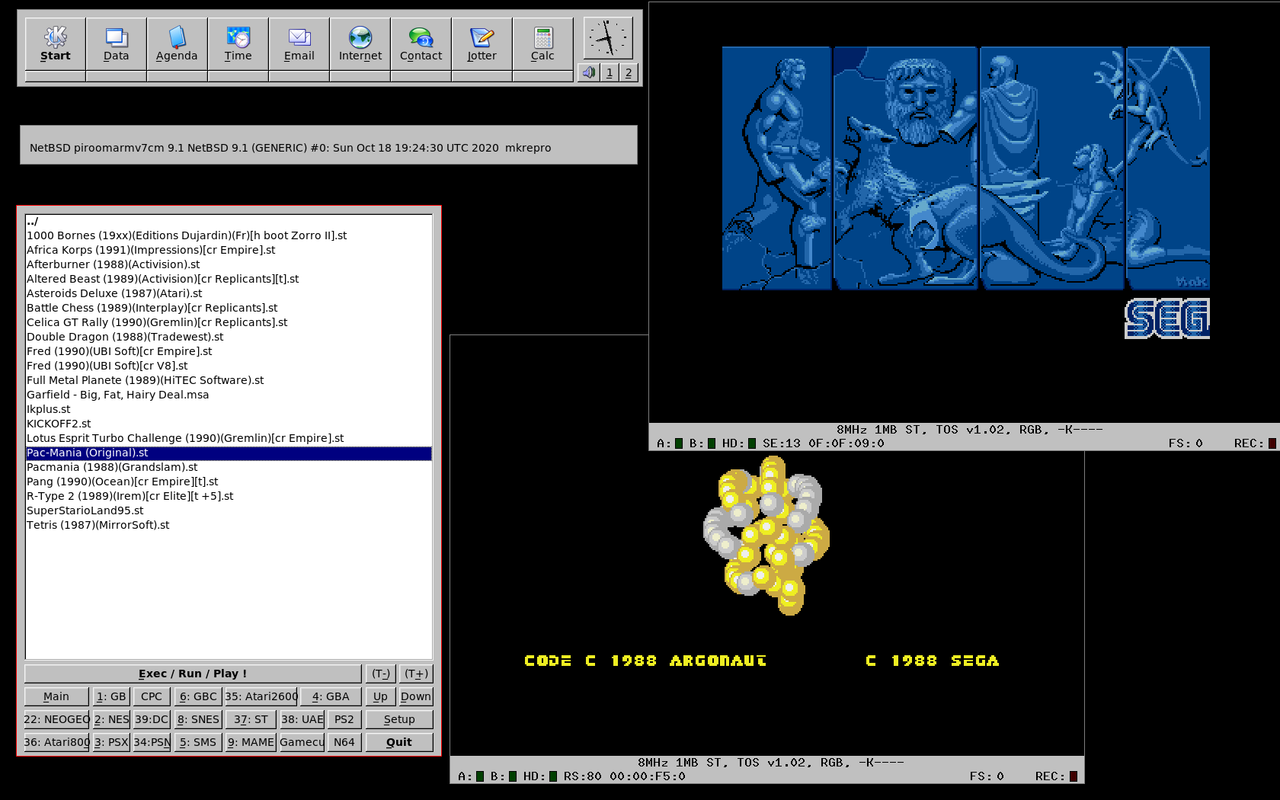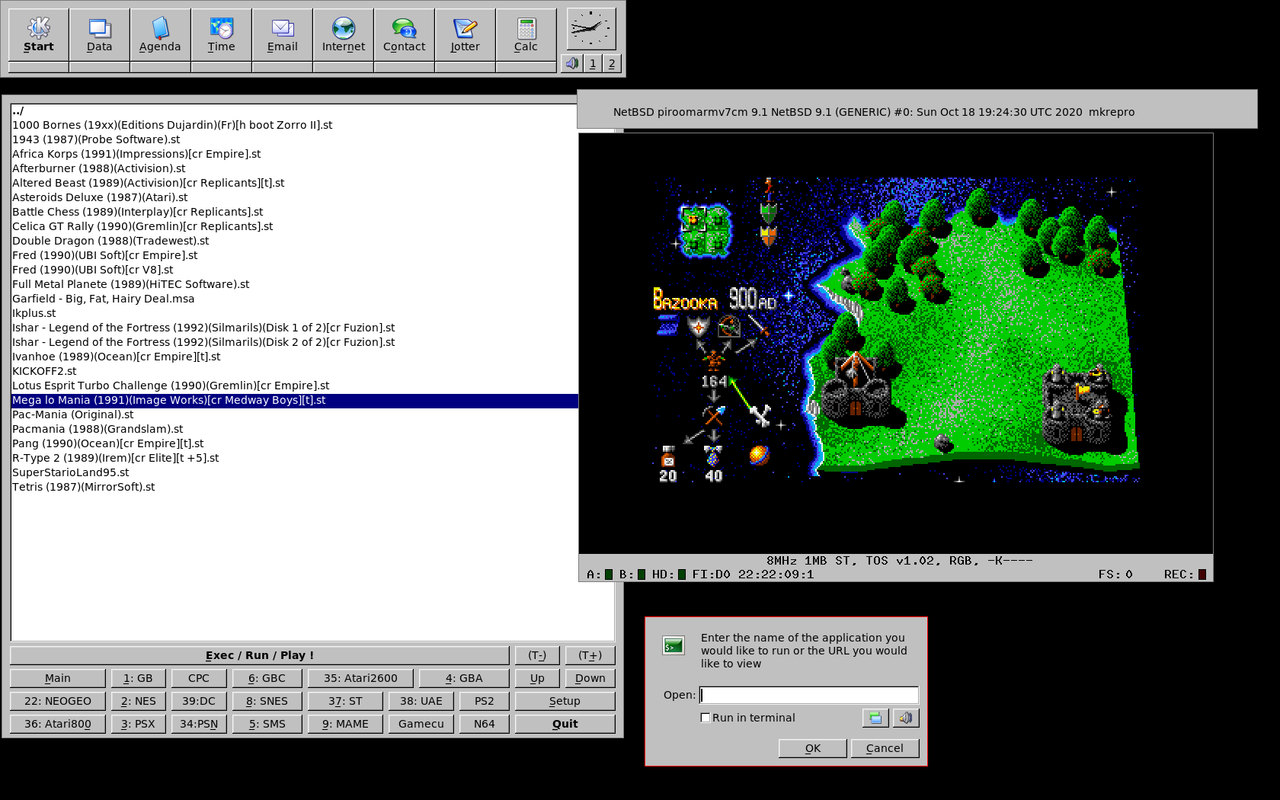openbsd98324
Still Fresh
- Joined
- Jan 7, 2022
- Messages
- 60
Hello,
BSD operating systems are extremely good. FreeBSD, NetBSD, and OpenBSD have outstanding performances and are high quality software.
This makes BSD ideally suited for any use, namely servers, desktop, gaming,... media centers.
NetBSD would/could/... be well suited for Pyra and OpenPandora. It has a great desktop and the hardware support is pretty ok.
Example: Raspberry PI.
One can run anything on the PI using NetBSD. It is extremely stable. If you never heard of PKGSRC, please have a look, this is fantastic package manager from source.
The type of ARM is not officially supported. Anyhow, the NetBSD would run on the Pyra and OpenPandora with some little modifications.
I am trying to get NetBSD to run on this openpandora. NetBSD with desktop would be more advanced, ... stable, and faster than Linux.
I created ext2, with the netbsd kernel but I guess autoboot.txt cannot load a kernel7.img of BSD ?
I created the ld0a., edited config in the ext2 to try to boot netbsd.
Any ideas are welcome.
Please find the image of my current arm netbsd desktop, including base, comp, and the kernel (ready out of the box for SD/MMC).
BSD operating systems are extremely good. FreeBSD, NetBSD, and OpenBSD have outstanding performances and are high quality software.
This makes BSD ideally suited for any use, namely servers, desktop, gaming,... media centers.
NetBSD would/could/... be well suited for Pyra and OpenPandora. It has a great desktop and the hardware support is pretty ok.
Example: Raspberry PI.
One can run anything on the PI using NetBSD. It is extremely stable. If you never heard of PKGSRC, please have a look, this is fantastic package manager from source.
The type of ARM is not officially supported. Anyhow, the NetBSD would run on the Pyra and OpenPandora with some little modifications.
I am trying to get NetBSD to run on this openpandora. NetBSD with desktop would be more advanced, ... stable, and faster than Linux.
I created ext2, with the netbsd kernel but I guess autoboot.txt cannot load a kernel7.img of BSD ?
I created the ld0a., edited config in the ext2 to try to boot netbsd.
Any ideas are welcome.
Please find the image of my current arm netbsd desktop, including base, comp, and the kernel (ready out of the box for SD/MMC).



